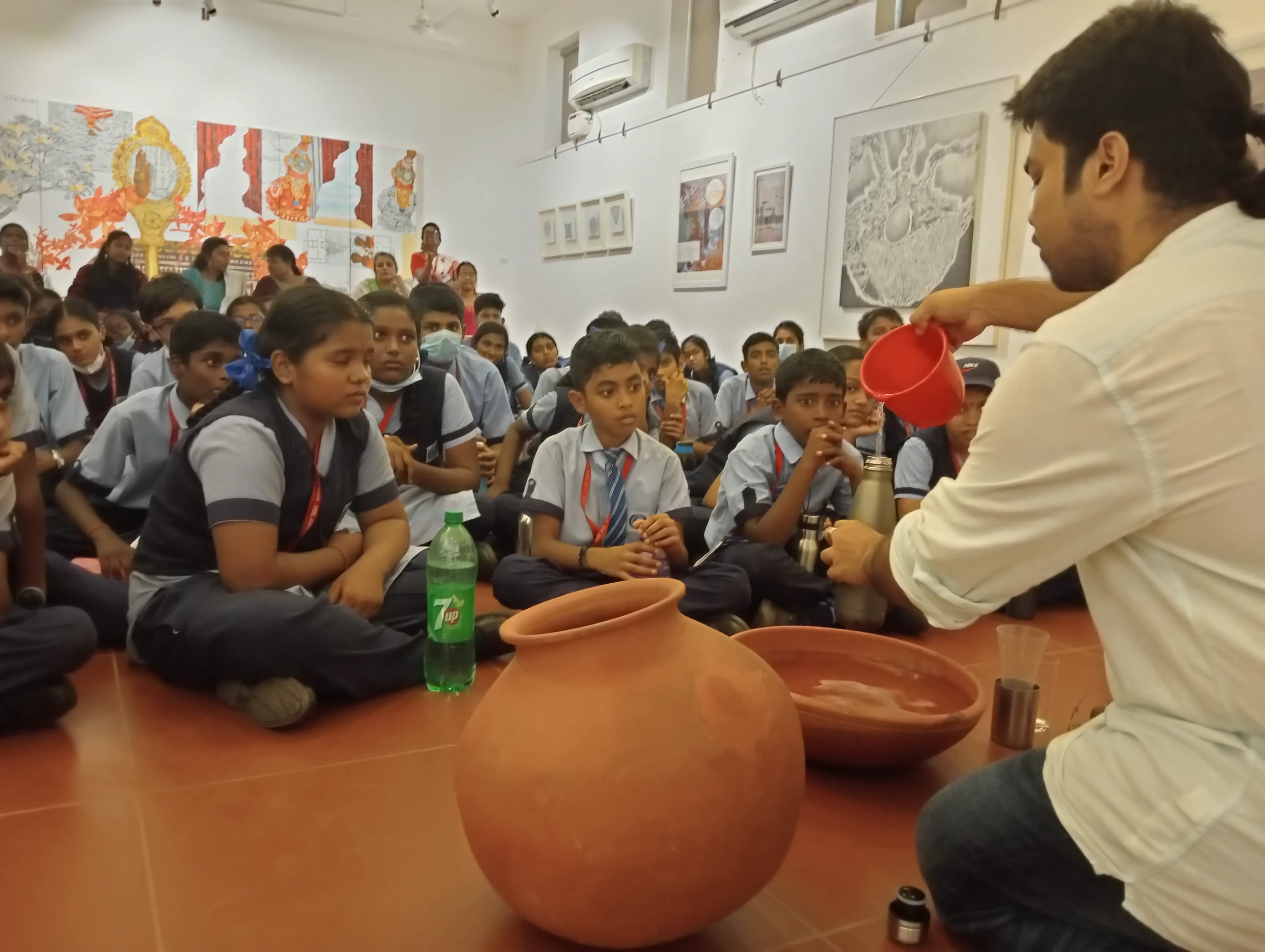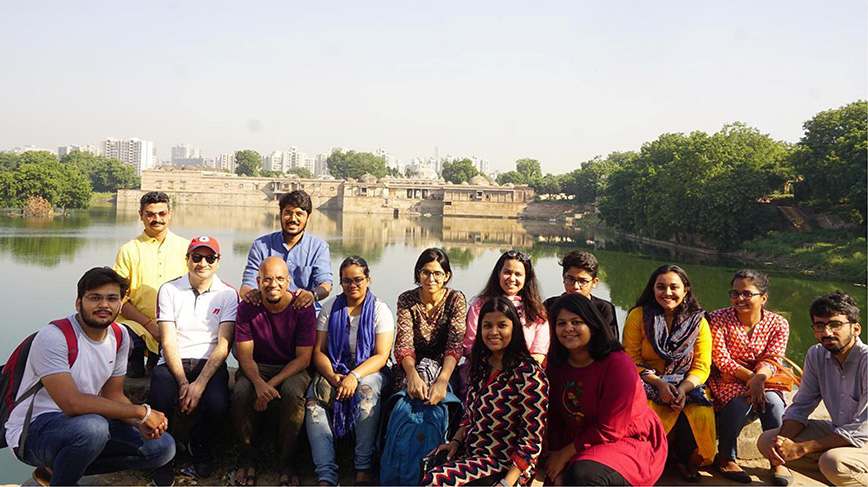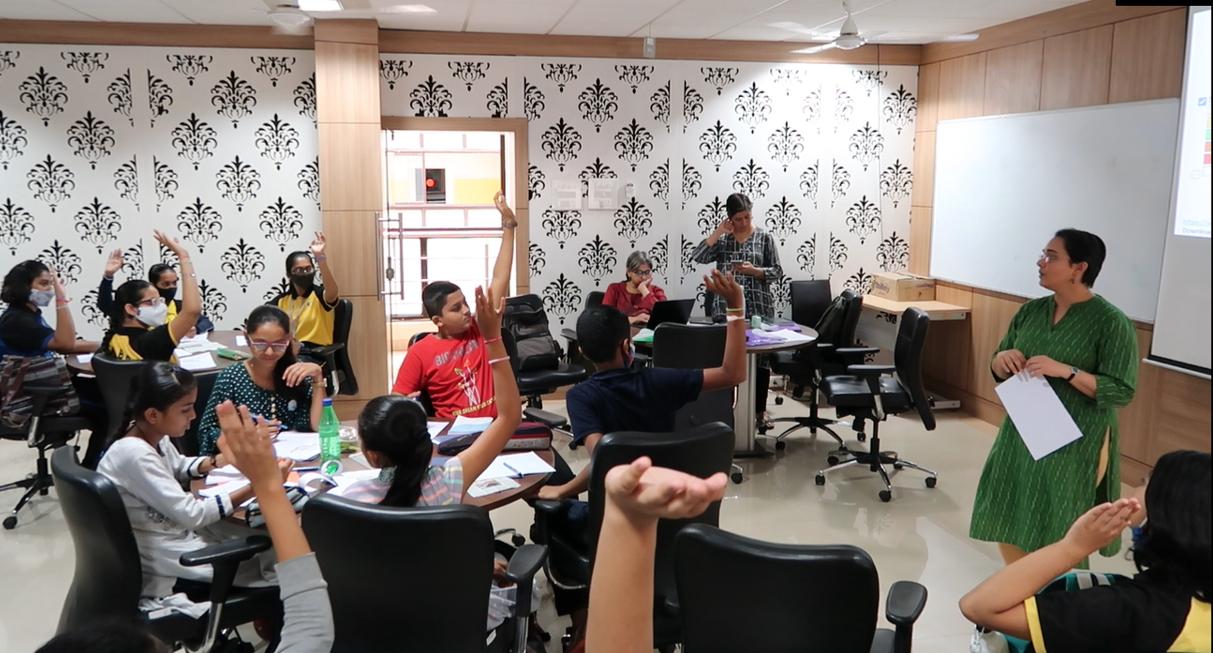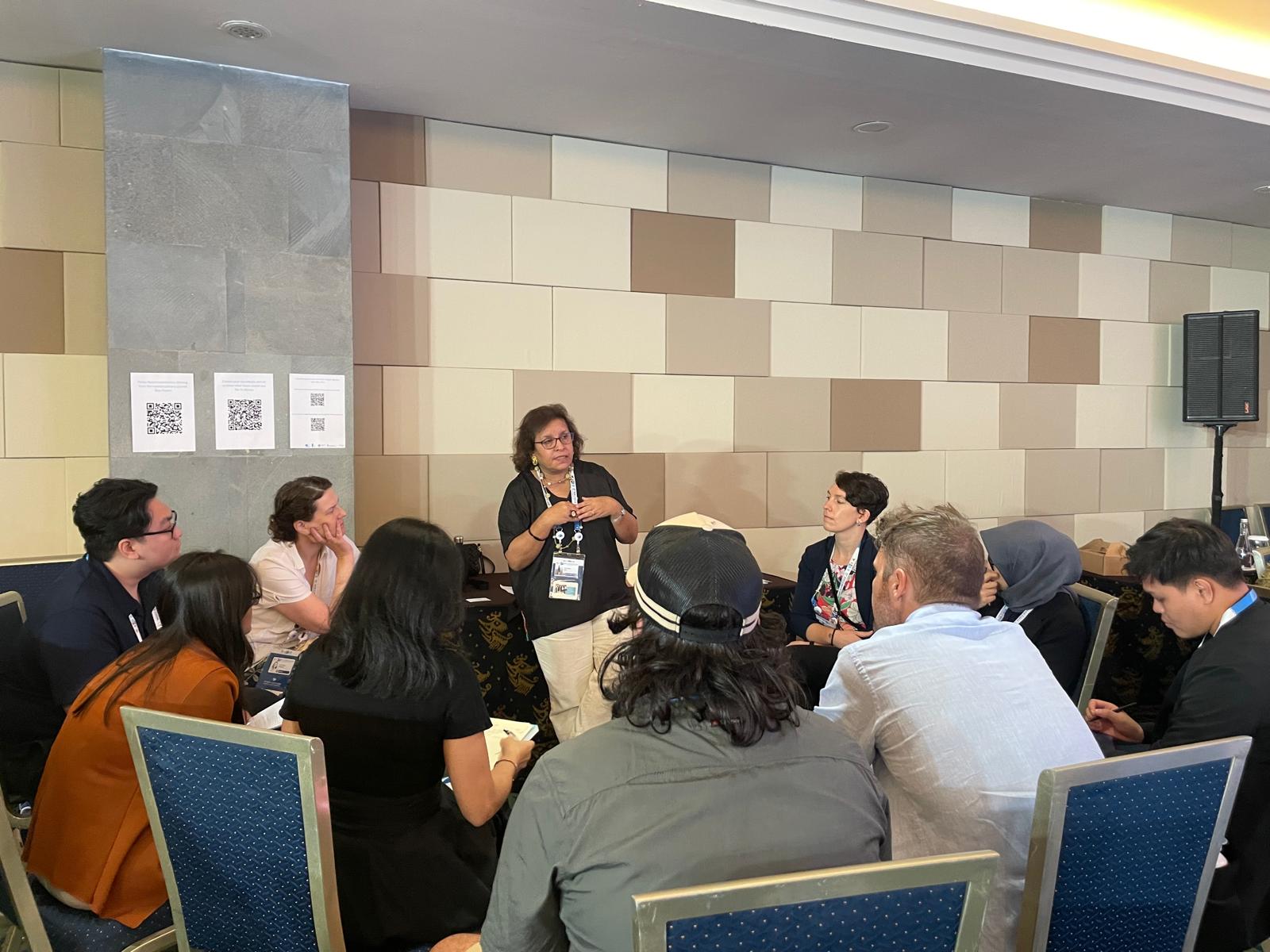Our Vision
Established in 2017, the Living Waters Museum is a hybrid museum that engages youth in visualizing water heritage and re-imagining sustainable, inclusive, and equitable water futures. Through the power of storytelling and technology, we seek to celebrate our water wisdom and inspire youth to look at water from a multidimensional lens by co-building a digital repository as a source of learning for the future. In 2020 we moved to the Centre for Water Research at the Indian Institute of Science Education and Research (IISER) in Pune, after three years at the Centre for Heritage Management, Ahmedabad University. We are one of the founder-members of the Global Network of Water Museums, endorsed by UNESCO’s Intergovernmental Hydrology Program in 2018 as a special initiative towards SDG 6 on access to clean water and sanitation.

Why 'Living Waters'
Water has shaped civilizations across the Indian subcontinent, inspired art and architecture, stories and folklore, rituals and practices, poems, songs, music, film, and dance. Our mighty rivers, such as the Ganga, Indus, and Brahmaputra have been at the heart of economic growth, trade, and transport while our oceans have seen conquest, exploration, and maritime expansion. However, population growth, unsustainable development patterns, and the growing risk of climate change threaten our water security. As glaciers retreat, rivers dammed, springs dry, and groundwater is over-exploited, we need new ways of visualizing our water wisdom to shape sustainable water futures for all. The term living waters reflects the diversity, dynamism, and continuity of the elixir of life.

Our Approach
Museums are typically associated with preserving the past. They conjure up images of old relics and stuffy, fastidious spaces frequented on field trips in school. Today they are being redefined as interactive learning spaces that make use of digital tools. Much like water, museums do not have to be bound by walls and physical structures. The LWM digital space allows us to democratize our water heritage by expanding accessibility. It provides us an opportunity to curate stories beyond borders and boundaries (whether linguistic, cultural, or geographical) to create new forms of collaborative ownership. We collaborate with young people to design and curate digital media that communicates our diverse water challenges. Ideas for new stories often come from our collaborators as part of their students' graduation projects and other academic papers, or through an open call for contributions (our exhibition on Women, Water, and Work). In 2020, we launched the Water Seekers Fellowship with the Social and Political Research Foundation, New Delhi.
Through these grants, fellows created stories and policy briefs on themes ranging from indigenous water technologies and systems to urban waterscapes. Our final round of fellowships titled Flowing Rivers (2022) brought in WWF-India as an additional partner. We started to deepen our work on urban waterscapes during the COVID-19 pandemic by creating digital exhibitions with large collaborative partnerships in Mumbai, Pune, Jodhpur, Kolkata, and now Goa. These were launched with online/in-person panels, films, music and dance events, water walks, and conversations. Our role as a museum relies on finding pathways to engaging with young people and local communities. Our work in the Northeast using art-based approaches with adolescent girls from Indigenous communities and our projects on climate awareness in the Sundarbans and Water Classrooms in Pune are part of these efforts to move beyond the digital.

Our Founder
With a PhD from the University of Cambridge, Sara Ahmed has more than 30 years of experience in the water sector as an academic, activist, and policy advocate on issues of water governance, gender, and social equity. Through her work in India, the region, and globally, Sara realized that our water practice does not reflect our rich water wisdom or values and that there was a disconnect from the world of art or the oral traditions of storytelling as a means of communication on our growing water challenges. So began the idea of a water 'museum', traversing from physical to digital space as a more dynamic medium for visualizing narratives on water heritage that can flow like water, and like water, adopt different 'forms'.
